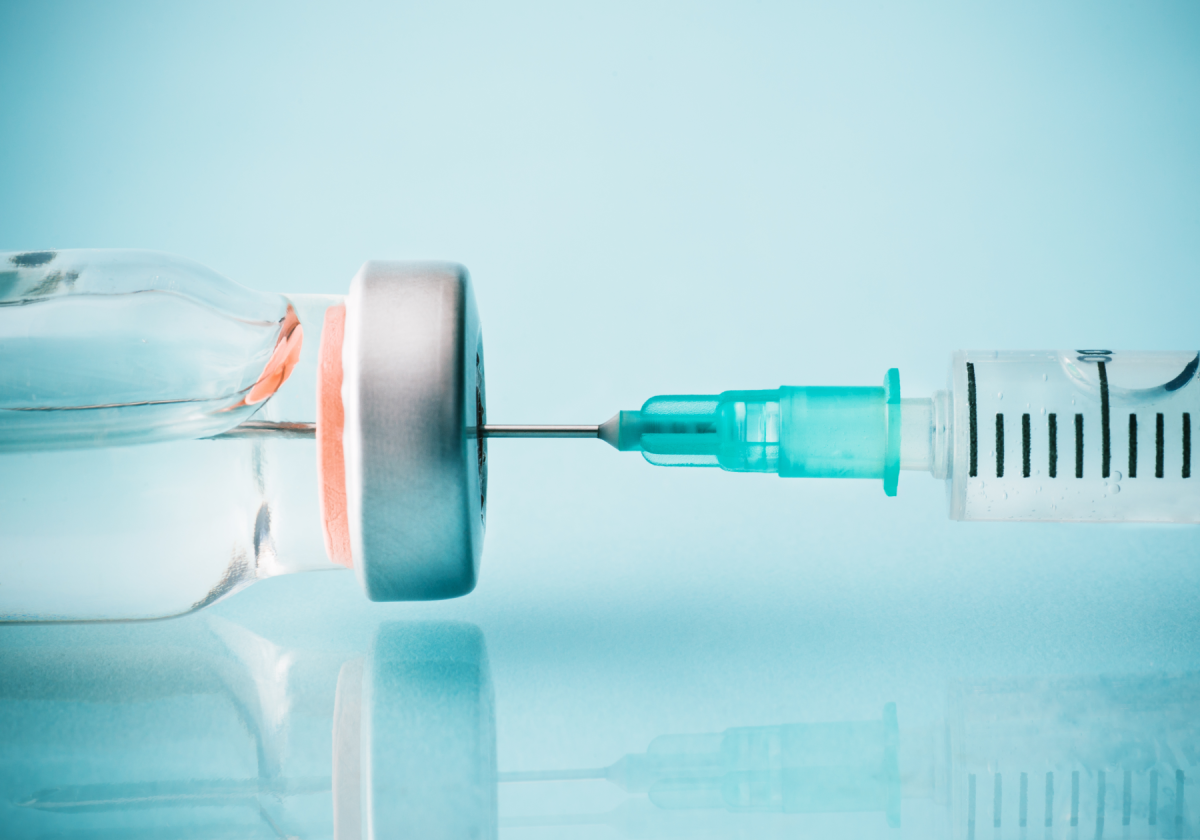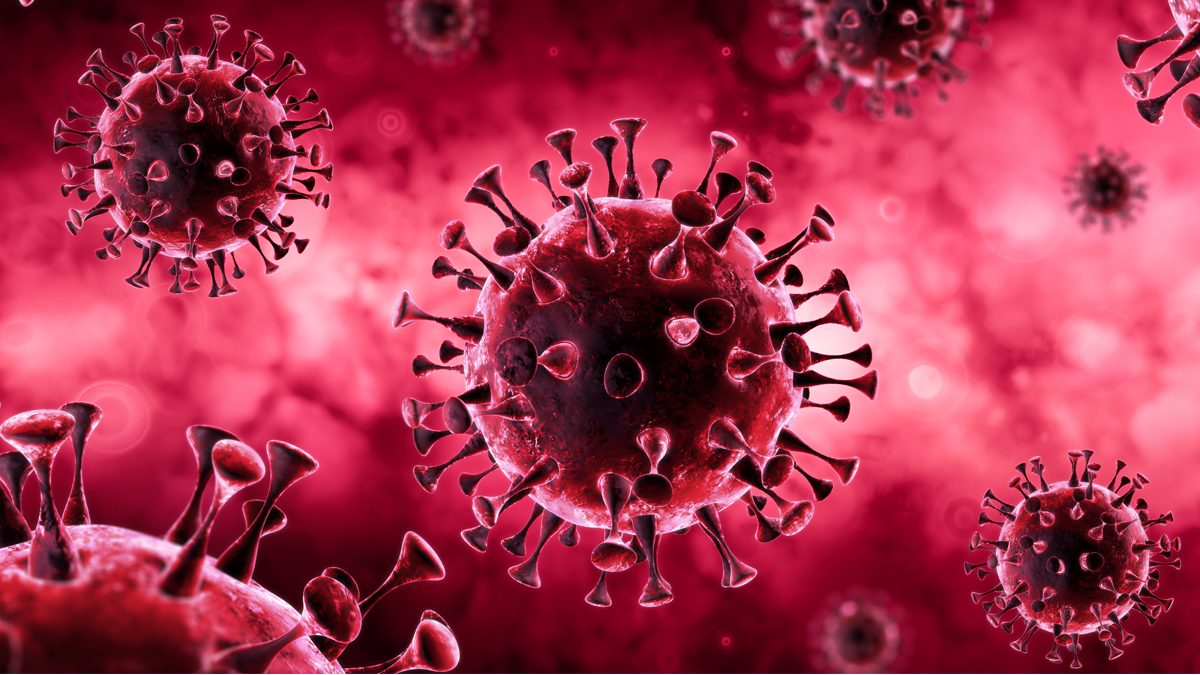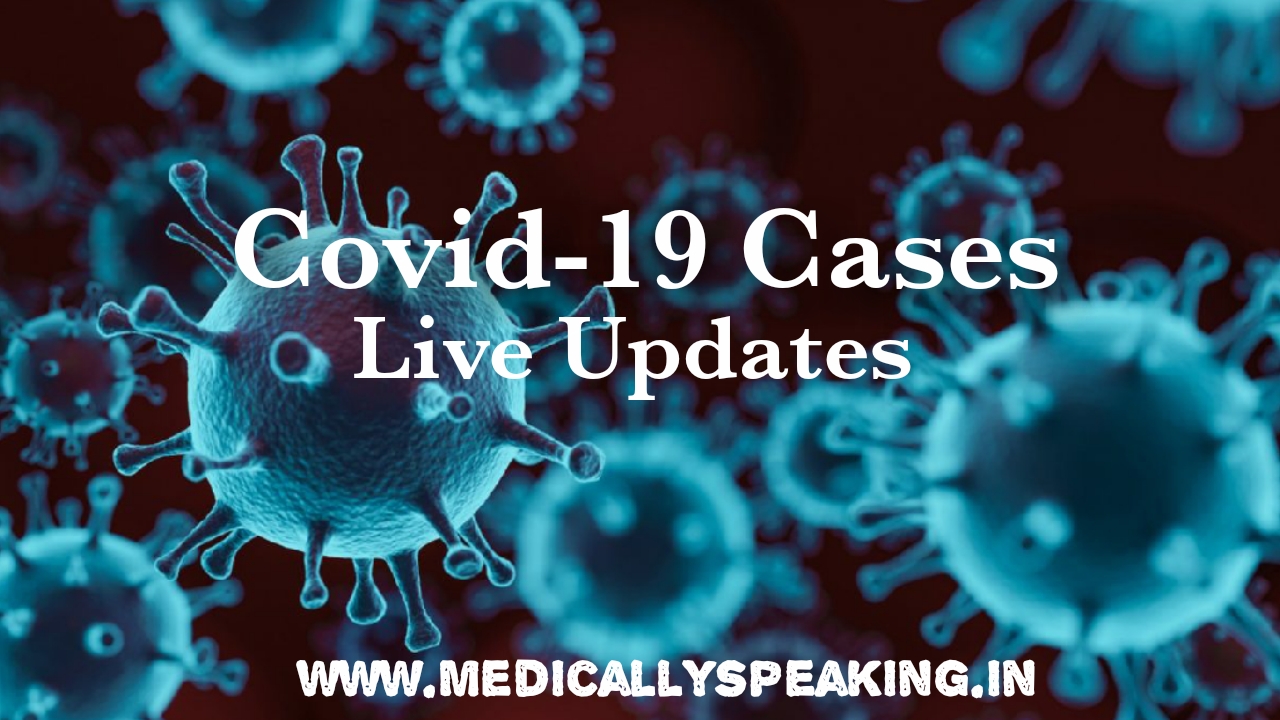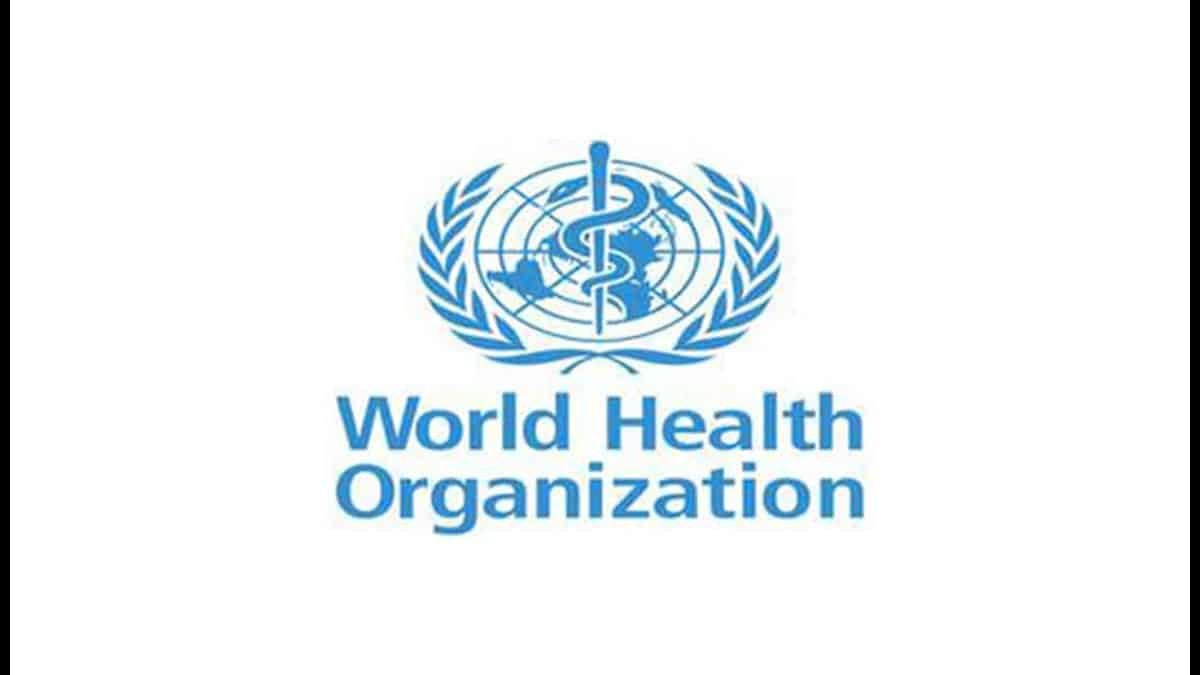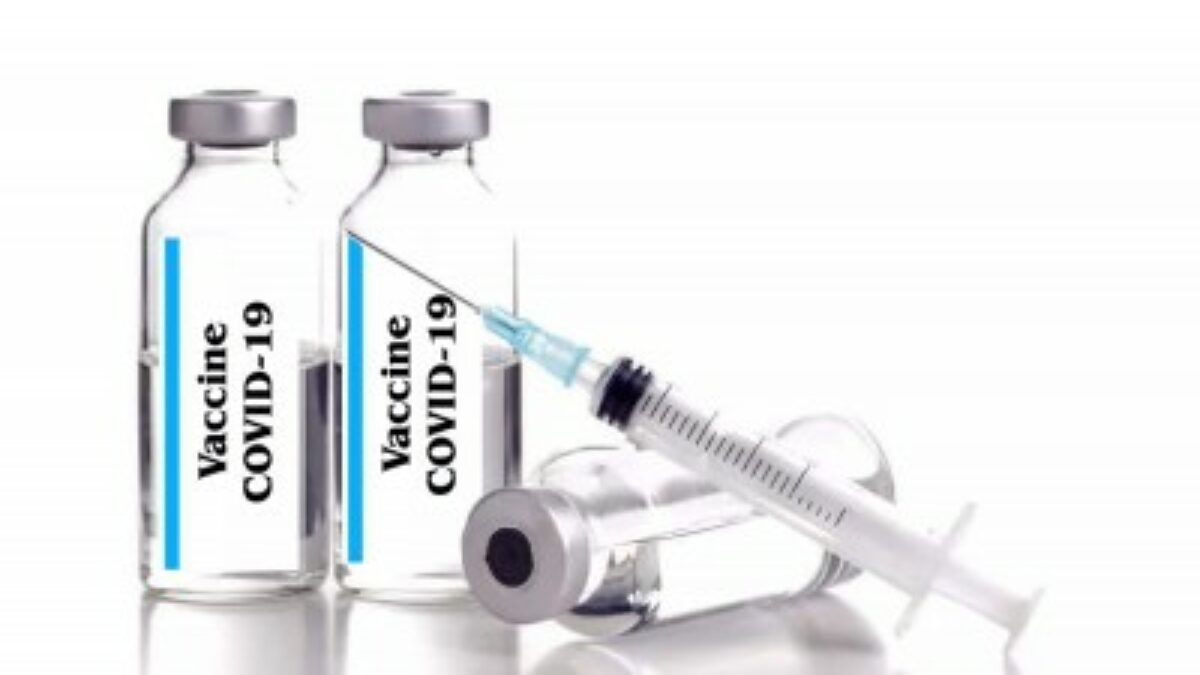covid
COVID-19-induced antibodies effective against the delta variant, suggests study
Despite causing a surge in infections this summer that has resulted in thousands of hospitalizations and deaths, the delta variant of the virus that causes COVID-19 is not particularly good at evading the antibodies generated by vaccination, according to a study by researchers at Washington University School of Medicine in St. Louis.
The researchers analyzed a panel of antibodies generated by people in response to the Pfizer COVID-19 vaccine and found that delta was unable to evade all but one of the antibodies they tested. Other variants of concern, such as beta, avoided recognition and neutralization by several of the antibodies.
In previous studies, co-senior author Ali Ellebedy, PhD, an associate professor of pathology & immunology, of medicine and of molecular microbiology, had shown that both natural infection and vaccination elicit lasting antibody production. But the length of the antibody response is only one aspect of protection. The breadth matters, too. An ideal antibody response includes a diverse set of antibodies with the flexibility to recognize many slightly different variants of the virus. Breadth confers resilience. Even if a few antibodies lose the ability to recognize a new variant, other antibodies in the arsenal should remain capable of neutralizing it.
“The fact that delta has outcompeted other variants does not mean that it’s more resistant to our antibodies compared to other variants,” said co-senior author Jacco Boon, PhD, an associate professor of medicine, of molecular microbiology and of pathology & immunology. “The ability of a variant to spread is the sum of many factors. Resistance to antibodies is just one factor. Another one is how well the variant replicates. A variant that replicates better is likely to spread faster, independent of its ability to evade our immune response. So delta is surging, yes, but there’s no evidence that it is better at overcoming vaccine-induced immunity compared to other variants.”
To assess the breadth of the antibody response to SARS-CoV-2, the virus that causes COVID-19, Ellebedy and colleagues — including co-first authors Aaron Schmitz, PhD, a research specialist; Jackson S. Turner, PhD, an instructor in pathology & immunology; and Zhuoming Liu, PhD, a staff scientist — extracted antibody-producing cells from three people who had received the Pfizer vaccine. They grew the cells in the laboratory and obtained from them a set of 13 antibodies that target the original strain that began circulating last year.
The researchers tested the antibodies against four variants of concern: alpha, beta, gamma and delta. Twelve of the 13 recognized alpha and delta, eight recognized all four variants, and one failed to recognize any of the four variants.
Scientists gauge an antibody’s usefulness by its ability to block virus from infecting and killing cells in a dish. So-called neutralizing antibodies that prevent infection are thought to be more powerful than antibodies that recognize the virus but can’t block infection, although both neutralizing and non-neutralizing antibodies contribute to defending the body.
The researchers found that five of the 13 antibodies neutralized the original strain. When they tested the neutralizing antibodies against the new variants, all five antibodies neutralized delta, three neutralized alpha and delta, and only one neutralized all four variants.
“In face of vaccination, delta is relatively a wimpy virus,” Ellebedy said. “If we had a variant that was more resistant like beta but spread as easily as delta, we’d be in more trouble.”
The antibody that neutralized all four variants of concern — as well as three additional variants tested separately — was called 2C08. In animal experiments, 2C08 also protected hamsters from disease caused by every variant tested: the original variant, delta and a mimic of beta.
Some people may have antibodies just as powerful as 2C08 protecting them against SARS-CoV-2 and its many variants, Ellebedy said. Using publicly available databases, the researchers discovered that about 20% of people infected or vaccinated against SARS-CoV-2 create antibodies that recognize the same spot on the virus that is targeted by 2C08. Moreover, very few virus variants (.008%) carry mutations that allow them to escape antibodies targeting that spot.
“This antibody is not unique to the person we got it from,” Ellebedy said. “Multiple antibodies targeting this area have been described in the literature; at least one is under development as a COVID-19 therapy. Similar antibodies have been generated by people infected in Italy and people infected in China and people vaccinated in New York. So it’s not limited to people of certain backgrounds or ethnicities; it’s not generated only by vaccination or by infection. A lot of people make this antibody, which is great because it is very potent and neutralizes every variant we tested.”
Source: Washington University School of Medicine
As the Delta version becomes more common, the US will propose booster shots for everyone
As the Delta strain of the virus spreads swiftly across the country, US health officials are anticipated to suggest an extra dose of COVID-19 vaccine for all Americans.
A source familiar with the decision told the Reuters news agency that health officials in US President Joe Biden’s administration will suggest that most people get a booster shot eight months after their initial vaccine.
The extra jabs could begin as early as mid or late September, pending authorisation from the US Food and Drug Administration, the source said.
The forthcoming recommendation by the US Centers for Disease Control (CDC), telegraphed by US officials last week, is being driven by both the highly contagious new variant of the virus and early signs that protection from vaccines fades within months.
The move means that the biggest mass vaccination drive in US history, which has been only partially successful, will have to expand and continue.
The US is experiencing a fourth wave of the pandemic as the Delta variant spreads aggressively through unvaccinated communities in the US – notably southern states of Florida, Alabama, Mississippi, Louisiana and Texas – and causing an increasing number of “breakthrough infections” of fully inoculated people.
US has fully vaccinated 168 million people, or about 62 percent of the adult population as of August 16, according to the CDC. Those numbers are below benchmarks set by the Biden administration for the national vaccination programme by now.
The US now is admitting to hospital more than 11,000 people a day with symptoms of COVID-19, according to the CDC.
Alabama Governor Kay Ivey issued an emergency order on Friday as the state’s hospitals faced a surge in COVID-19 cases and available intensive care beds were filled up with the very ill.
“We have to really make sure that while we’re spending a lot of time and effort on third doses that we don’t undermine our campaign for first vaccinations,” Lawrence Gostin, a public health specialist at Georgetown University, said Tuesday.
“That’s truly the existential crisis in the United States,” Gostin told The Associated Press.
One positive trend in the US, vaccination rates have been increasing as people see the virus resurge.
Harris County, Texas, home to the US’s fourth-largest city Houston, is offering people $100 gift cards to get jabs in the latest incentive offered by local officials to boost the area’s lagging vaccination rate, according to the Houston Chronicle newspaper.
In New York, the governor has ordered that all healthcare workers in the state including at hospitals and nursing homes receive a vaccine against COVID-19.
Biden issued an order on Tuesday directing the Federal Emergency Management Agency (FEMA) to cover 100 percent of local costs for emergency measures and provide federal support for state governor’s use of the National Guard to staff mass vaccination sites.
The daily Covid-19 cases in India saw a steep rise on Wednesday as 35,178 people tested positive for the viral infection in the last 24 hours, according to Union health ministry data. 440 deaths were also recorded during this period taking the death toll to 4,32,519.
The country haves a total caseload of 32,285,857 infections.
The number of active cases is 367,415, which is the lowest in 148 days. It now comprises 1.14% of the total caseload. As many as 31,485,923 people have recovered from the disease over the last 24 hours, the health ministry data showed.
On Wednesday, the daily positivity rate was recorded at 1.96 per cent. It has been less than three per cent for the last 23 days. The weekly positivity rate is at 1.95 per cent. According to the health ministry, it has been below three per cent for the last 54 days.
Cumulatively, 560.6 million Covid-19 vaccine doses have been administered during the nationwide vaccination drive so far, as per the health ministry figures.
Covid Case Update: India reports 25,166 new Covid-19 cases, 437 deaths
India reported 25,166 new Covid-19 cases and 437 deaths in the last 24 hours, according to data from the Union Health Ministry.
Out of the new cases, Kerala reported 12,294 new cases, 142 deaths while Maharashtra had 4,145 new infections and 101 fatalities. Active cases in the country have come down to 3,69,846, the lowest in 146 days. It comprises 1.15 per cent of the total infections, the ministry said.
There are a total of 3,22,50,679 coronavirus cases in the country at present. The overall death toll has reached 4,32,079. As many as 3,14,48,754, people have recovered from the disease. The daily positivity rate was recorded at 1.61 per cent. It has remained below 3 per cent for the last 22 days. The weekly positivity rate was recorded at 1.98 per cent. The ministry said 55.47 crore vaccine doses have been administered so far.
More than 56.81crore (56,81,32,750)vaccine doses have been provided to States/UTs so far, through all sources and a further 1,09,32,960 doses are in the pipeline.
Of this, the total consumption including wastages is 55,11,51,992 doses according to the data provided by Health Ministry.
Meanwhile, ten more cases of Delta plus variant of SARS-CoV2 virus were identified across Maharashtra on Monday, taking the total count in the state to 76. Of the 10 new cases, six were identified in Kolhapur, three in Ratnagiri and one in Sindhudurg. The state has so far reported five deaths due to the variant.
India registered 32,937 fresh Covid-19 cases and 417 fatalities due to the infection in the last 24 hours, according to the latest data released by the Union Health Ministry.
As of 8 am on Monday, India’s active caseload stood at 3,81,947. In the last 24 hours, active cases declined by 3,389.
The top five states which have registered maximum cases are Kerala with 18,582 cases, followed by Maharashtra with 4,797 cases, Tamil Nadu with 1,896 cases, Andhra Pradesh with 1,506 cases and Karnataka with 1,431 cases.
India’s recovery rate now stood at 97.48 per cent.
A total of 35,909 patients recovered in the last 24 hours, pushing the total recoveries to 3,14,11,924 across the country.
India has administered a total of 17,43,114 doses in the last 24 hours. With this, the total tally of doses administered touched 54,58,57,108.
A total of 11,81,212 samples were tested in the last 24 hours.
India reported 38,667 fresh Covid cases in 24 hours raising the active caseload to 3,87,673 which constitutes 1.21% of the total cases. The country also reported 478 deaths, taking the cumulative death count to 4,30,732.
The daily positivity rate stands at 1.73 per cent, which has been less 3% for the last 19 days.
The weekly positivity rate also remained below 5% and is currently at 2.05%. Further, the daily positivity rate is at 1.73%.
In another significant development, more than 55.73 crore (55,73,55,480) vaccine doses have been provided to States/UTs so far, through all sources and a further 1,00,37,990 doses are in the pipeline. Of this, the total consumption including wastages is 53,26,03,653 doses, as per the provisional report by the health ministry.
Covid-19’s origins have been called into question again by the World Health Organization, but China has rejected the WHO’s demand for a new investigation, stating it prefers “scientific” research above “political” ones.
Pressure is once more mounting on Beijing to consider a fresh probe into the orgins of a pandemic which has killed more than four million people and paralysed economies worldwide since it first emerged in the central Chinese city of Wuhan.
A WHO team of international experts went to Wuhan in January 2021 to produce a first phase report, which was written in conjunction with their Chinese counterparts. It failed to find a conclusive position on how the virus began.
On Thursday the WHO urged China to share raw data from the earliest Covid-19 cases to revive its probe into the origins of the disease.
China hit back, repeating its position that the initial investigation was enough and that calls for further data were motivated by politics instead of scientific inquiry.
“We oppose political tracing … and abandoning the joint report” issued after the WHO expert team’s Wuhan visit in January, vice foreign minister Ma Zhaoxu told reporters. “We support scientific tracing.”
That report said the virus jumping from bats to humans via an intermediate animal was the most probable scenario, while a leak from the Wuhan virology labs was “extremely unlikely”.
Ma rejected suggestions of new lines of investigation.
“The conclusions and recommendations of WHO and China joint report were recognised by the international community and the scientific community,” he said.
“Future global traceability work should and can only be further carried out on the basis of this report, rather than starting a new one.”
Covid Case Update: 40,120 new cases, 585 deaths reported in India
India recorded 40,120 new covid-19 infections in the last 24 hours, taking the country’s tally to over 3.21 crore. Out of the new cases, active cases have come down to 3.85 lakh while recoveries have risen to 3.13 crore. Kerala continues to top the charts with 21,445 infections. The country recorded 585 deaths, the total toll climbed to 4,30,254
The health ministry informed that the cumulative Covid-19 vaccine doses administered in the country have exceeded 528.9 million.
More than 540.4 million Covid-19 vaccine doses have been provided to states and Union territories so far, and 1,09,83,510 additional doses are in the pipeline, the Union health ministry said on Thursday.
The Drugs Controller General of India (DCGI) has accepted a proposal that a research be conducted to analyse mixing a dose each of the two vaccines against the coronavirus disease (Covid-19), Covaxin and Covishield, Hindustan Times’ sister publication Live Hindustan has reported, citing India Today. The Subjects Experts Committee (SEC) of the Central Drugs Standard Control Organisation (CDSCO) had, on July 29, recommended that a study be conducted in this regard at Christian Medical College (CMC) in Tamil Nadu’s Vellore.
The proposed trial will see 300 volunteers being administered a dose each of Covaxin and Covishield.
The study will aim to determine whether two different vaccine doses could be administered for a person to be fully vaccinated against the coronavirus disease, instead of the existing practice of administering twin shots of the same vaccine.
The proposed study, however, is different from a recent research conducted by the Indian Council of Medical Research (ICMR) which concluded that combining two different shots is “safe and effective.” The ICMR research had analysed an “accidental” mixing of Covishield and Covaxin in a village in Uttar Pradesh, in May. The incident saw recipients being administered Covaxin as second dose, six weeks after they received Covishield as first. On analysing this, the ICMR found that “combining two different Covid-19 vaccines gives better immune response than two doses of the same vaccine.”
Experts, including Dr Gagandeep Kang, the country’s top virologist, see combining two different vaccines as a way to tackle vaccine shortage, though they also warn that more studies are needed to reach a definitive conclusion to determine the efficacy of this method in preventing Covid-19. Dr Kang, incidentally, is a professor at CMC Vellore.





